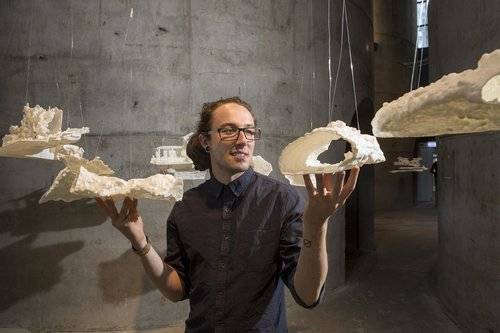[ihc-hide-content ihc_mb_type=”show” ihc_mb_who=”reg” ihc_mb_template=”3″ ]
[vc_row][vc_column][vc_column_text]Credits – 3dprint.com
3D printing has brought the potential for massive change in medicine—relating to so many different aspects, from bioprinting to making surgical guides and many different devices. The area of prosthetics has already been impacted in an extremely positive way, for patients of all ages around the world. Now, women who have undergone mastectomies in New Zealand can look forward to customized prostheses that offer amazing improvement on previous options.
Created by myReflection, these implants can be made as copies of women’s breasts before surgery. Photographs or scans are used to create the images which are then converted into a 3D design and later a 3D print. Fay Cobett of myReflection points out that these 3D printed devices can be credited for improving the quality of life for women who had breast cancer, underwent mastectomies, and want to ‘feel whole’ again.
“We’re all different – scars, lumps, bumps. We need to capture all those details,” explains Cobett.
As a cancer survivor herself, Cobett has firsthand knowledge of what it is like to struggle not only with the disease of breast cancer, but also the frustration of generic implants during the attempt to regain normalcy later. Her partner, Tim Carr (director of myReflection) wanted to create something that would mold to her body rather than cause intense discomfort. Carr began collaborating with 3D print expert Jason Barnett, and myReflection was born.
The patient-specific prosthetic is so lightweight and versatile that it can be worn with any bra, and due to the affordability associated with 3D printing (along with speed and efficiency in production), replacements are inexpensive.
“This is absolutely a world-first for New Zealand,” says Carr. “I watched [wife] Fay after she lost her breast [and] deal with the generic prosthesis. They don’t stay in place and they were heavy and they were expensive.”
Carr points out that due to the unique quality of the prosthetics, they could charge exponentially more for such a product. Their goal, however, is to make the myReflection prosthetics affordable and accessible. Carr also explains further on the company website that their goal was not to create an ‘elitist product,’ but rather one that women could enjoy easily; in fact, women living in New Zealand who have undergone mastectomies have prosthesis and bra costs covered with four yearly subsidies.
[/vc_column_text][vc_single_image image=”4693″ img_size=”full” add_caption=”yes”][vc_column_text]
“It has been such a personal journey for us.” said Carr on the myReflection website. ‘We are really excited to be able to share this product with other women who are going through or have been through what we have. If we can improve the quality of life of women who have been through the hell of breast cancer and help to restore their self-image, then it is all worth it.”
[/vc_column_text][vc_video link=”https://youtu.be/oHkHiIY-kcw” align=”center”][/vc_column][/vc_row]
[/ihc-hide-content]
The AM Chronicle Editorial Team is a collective of passionate individuals committed to delivering insightful, accurate and engaging stories to additive manufacturing audiences worldwide.



